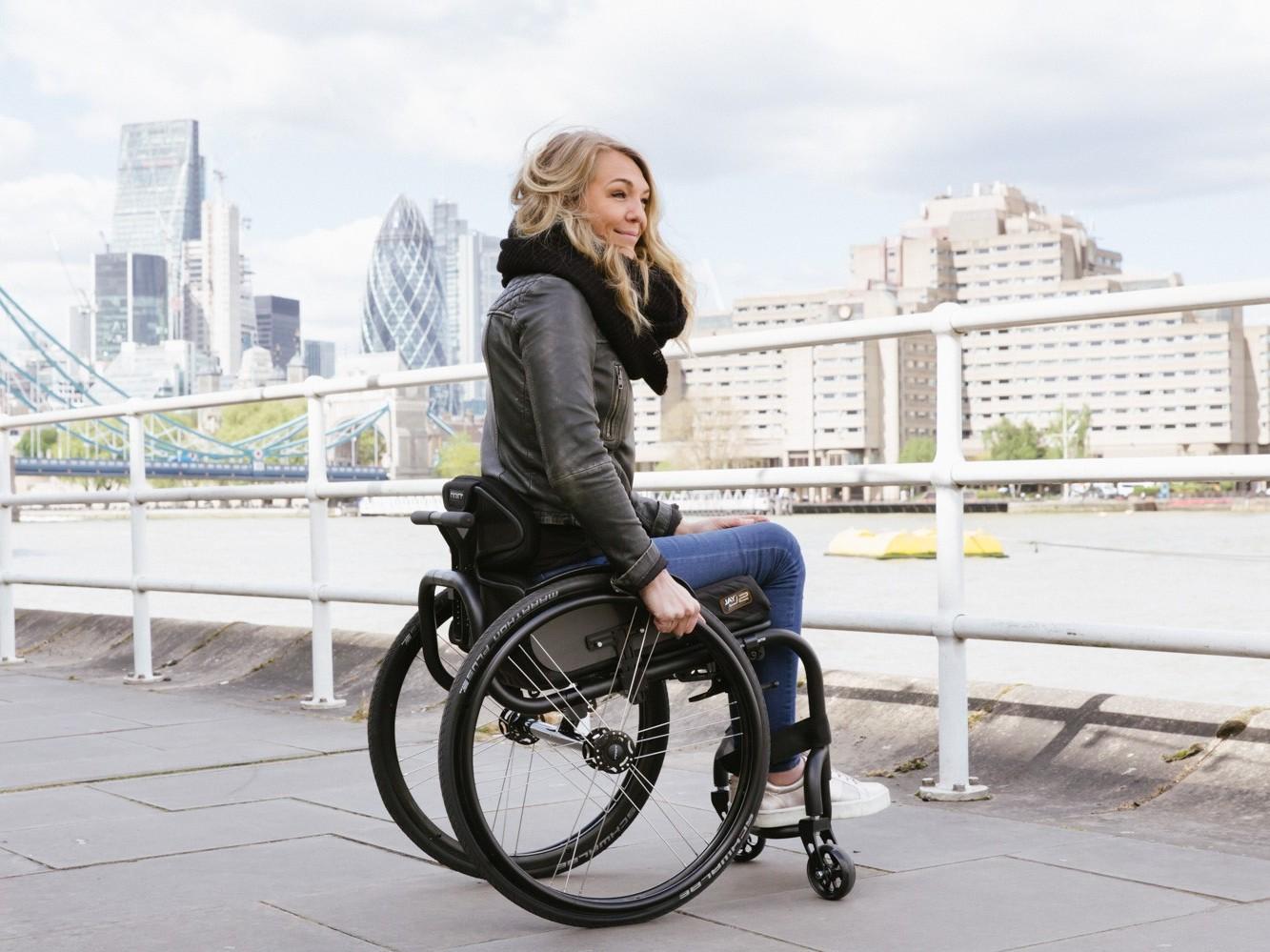The government’s new disabled ad campaign is hugely condescending… thank you for asking
‘Ask, don’t assume’ is the thrust of a new public awareness video. I tell you what, writes James Moore, wheelchair users like me will do the asking if we need a hand


I often wonder who it is that comes up with government ad campaigns. They’re just so… bad – especially when they involve disabled people.
“Ask, don’t assume,” trumpets the latest slogan. A video proceeds to talk about people grabbing wheelchairs and pushing without so much as a by-your-leave, of which I have personal experience.
It’s frightening. Viscerally so. It tends to happen to me on the hilliest part of my exercise workout. I’ll be listening to Public Enemy, or something in a similar vein, to get my arms pumping. So I’ll be deep in workout mode when someone decides to scare the hell out of me by coming up behind and shoving.
I go out splattered in logos. Under Armour, Nike or Adidas. Kit that says “exercise”. The chair I use also has no handles, a deliberate decision on my part in an attempt to put people off. None of it works. As often as not, they’ll put their hands not on the chair, but on my back, and start going at it.
So I must approve of these ads, right?
No. No, no, no! Because what I really want is just to be left alone. Like anyone else, I want to do my equivalent of a run without the public making assumptions – or, worse, asking questions.
Did I mention abuse? I should have. It’s a frequent problem, and I could really do without that, too. But the government campaign ignores the reality of the violence that we regularly experience.
Take a look at what we used to call “disabled Twitter”: on social media, the campaign has gone down like a motorised chair with a flat battery.
Props to Sophie Morgan, one of those too-rare disabled people who you might see on TV. She summed it up pretty well: “Please, don’t #ask. We will let you know if we need you for anything. Otherwise, you can #assume we are just fine. Thanks.”
That’s particularly true, I think, for autistic people. The campaign also features Niall, who rightly highlights the assumptions people wrongly make about people with his condition: “People coming up to me and saying things like: ‘You don’t look autistic’… there’s this assumption that autism has a specific look, when it doesn’t. I’m happy to talk to people about autism and hopefully educate them in some kind of small way.”
Good for him, if that’s the way he feels. But I have an autistic family member who absolutely does not want to do that. They do not want to be asked. They also just want to be left alone.
“Asking” can easily be as aggressive and unwanted as assumptions. A friend, challenged about using a disabled railcard, once had to remove their glass eye to make the point. That disabled enough for you, Mr Train Person?
But it isn’t just that the campaign is ill-conceived. It is the intent behind it that I find disturbing.
I see cynicism. This is the state trying to convince people it cares, when all the evidence suggests that it doesn’t give two hoots. There is a deep hypocrisy at work when the government tries to lecture the public on how to act when it sets the worst possible example.
Don’t assume? It assumes every disabled person in Britain is a dirty, rotten benefits cheat. It requires jumping through so many hoops to prove disability that you are left feeling like one of those dogs they have doing exploitative tricks at Crufts.
I spent a small part of yesterday on X/Twitter responding to someone who scored zero after attending an assessment for the Personal Independence Payment (PIP), which is intended to provide (inadequate) support with the ruinous extra costs of living with disability. They had severe hip arthritis and reported being in so much pain, they relied on lifts to get anywhere. There is your extra cost, because it’s a cab if you can’t get a ride with a friend.
They said they had submitted letters, X-rays, ultrasounds, physio reports. But they took their medication, so zero was their score. “Can’t face an appeal,” was the despairing final sentence.
The latest Ministry of Justice statistics will tell you more than two-thirds (68 per cent) of PIP appeals are successful. But many disabled people are intimidated by what is inevitably a legalistic process that makes them feel criminalised.
Hey, government ministers – want to “ask” something of me? The above is what disabled people need assistance with fixing.
We also could do with accessible transport. With buildings we can get into. With a health service that works and treats us with a modicum of respect. With parking bays that councils don’t randomly withdraw, and then slap fines on us because the tiny warnings are placed above wheelchair height.
I know, Rome wasn’t built in a day. But no one in government seems interested in laying so much as a single foundation. The same is true of councils, of all political colours. This is an all-party problem. It similarly holds true for quangos. They all bang on about how passionately committed to inclusion they are, but then conveniently forget disabled people exist.
An ad campaign can’t paper over the cracks we fall into every damn day. This one talks about allies, which is rapidly becoming one of today’s most irritating buzzwords. We don’t need asking, assumptions, ads or allies. We just need to be treated like human beings by our peers – and especially by our government.






Join our commenting forum
Join thought-provoking conversations, follow other Independent readers and see their replies
Comments